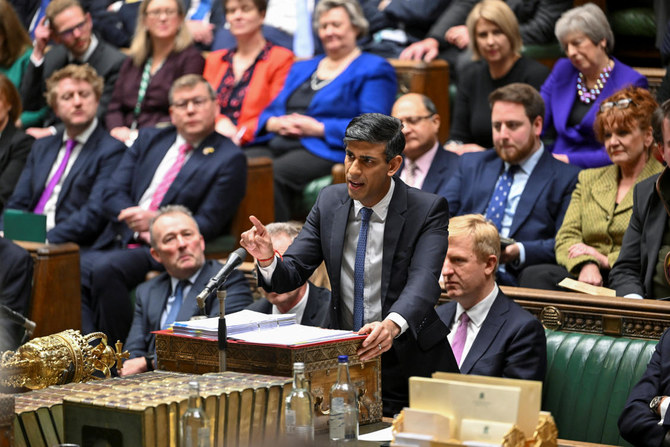British Prime Minister Rishi Sunak finds himself in the midst of a party revolt just a day after revealing a divisive plan to bypass certain human rights laws, allowing the deportation of migrants to Rwanda. This move has reignited deep divisions within the Conservative Party, with lawmakers on the right wing challenging the government’s stance on international treaties governing migration.
Sunak, facing one of the most significant challenges of his year-long tenure, is grappling with dissent from within his party, exacerbated by the resignation of his immigration minister. Questions loom over whether he can secure parliamentary approval for this contentious policy, and some Conservative members suggest that Sunak may face a potential leadership challenge.
The proposed legislation comes in the aftermath of a Supreme Court ruling declaring Rwanda an unsafe destination for migrants arriving on England’s southern coast. This setback has dealt a blow to Sunak’s efforts to curb illegal migration, a pivotal aspect of his strategy as he works to revive a struggling economy and trails behind the main opposition party in anticipation of an upcoming election.
To rally party support, Sunak may escalate the stakes by framing the vote on the new legislation as a confidence vote. Such a move could trigger a national election if he faces defeat. While only one Conservative lawmaker has publicly called for a vote of no confidence, six others have reportedly expressed similar sentiments in private.
Despite Sunak’s plea for party unity, internal dissent has been evident. This week, the prime minister suffered his first parliamentary defeat as members voted to establish a compensatory body for victims of the infected blood scandal.
The proposed bill seeks to instruct judges to disregard certain sections of the Human Rights Act and provisions of domestic or international law that challenge Rwanda’s designation as a safe destination. However, critics within Sunak’s party, including former ministers Suella Braverman and Robert Jenrick, argue that the bill doesn’t go far enough, with some advocating for the UK to leave the European Convention on Human Rights.
Amidst these challenges, Braverman voiced concerns about the efficacy of the proposed bill, stating, “I’m very concerned that the bill on the table will allow a merry-go-round of legal claims and litigation.” The broader implication is that the proposed plan may not effectively deter illegal border crossings.
As immigration continues to be a prominent issue, both economically and politically, Sunak’s leadership and the fate of the controversial Rwanda asylum plan hang in the balance, setting the stage for a critical period in UK politics.
















